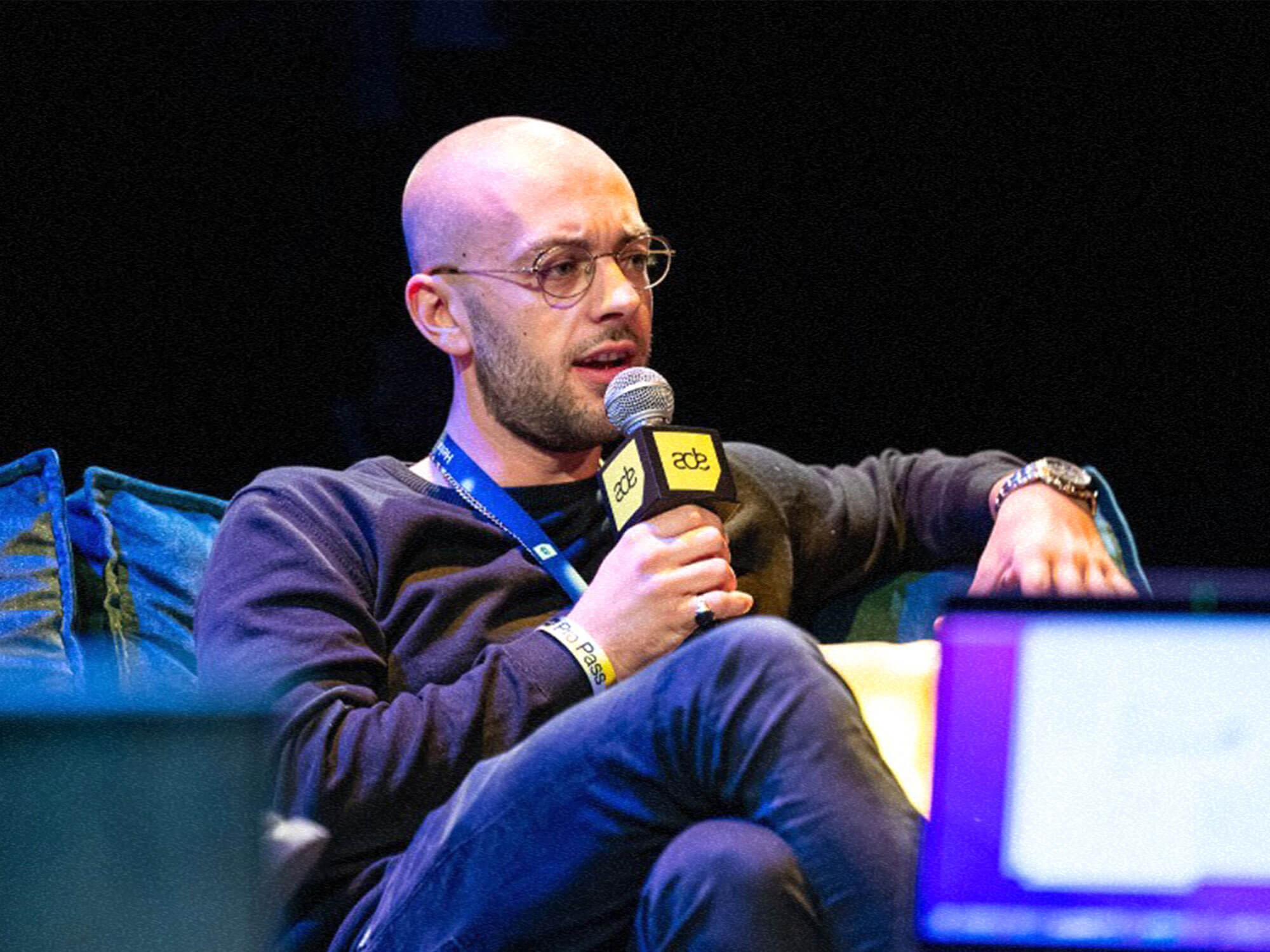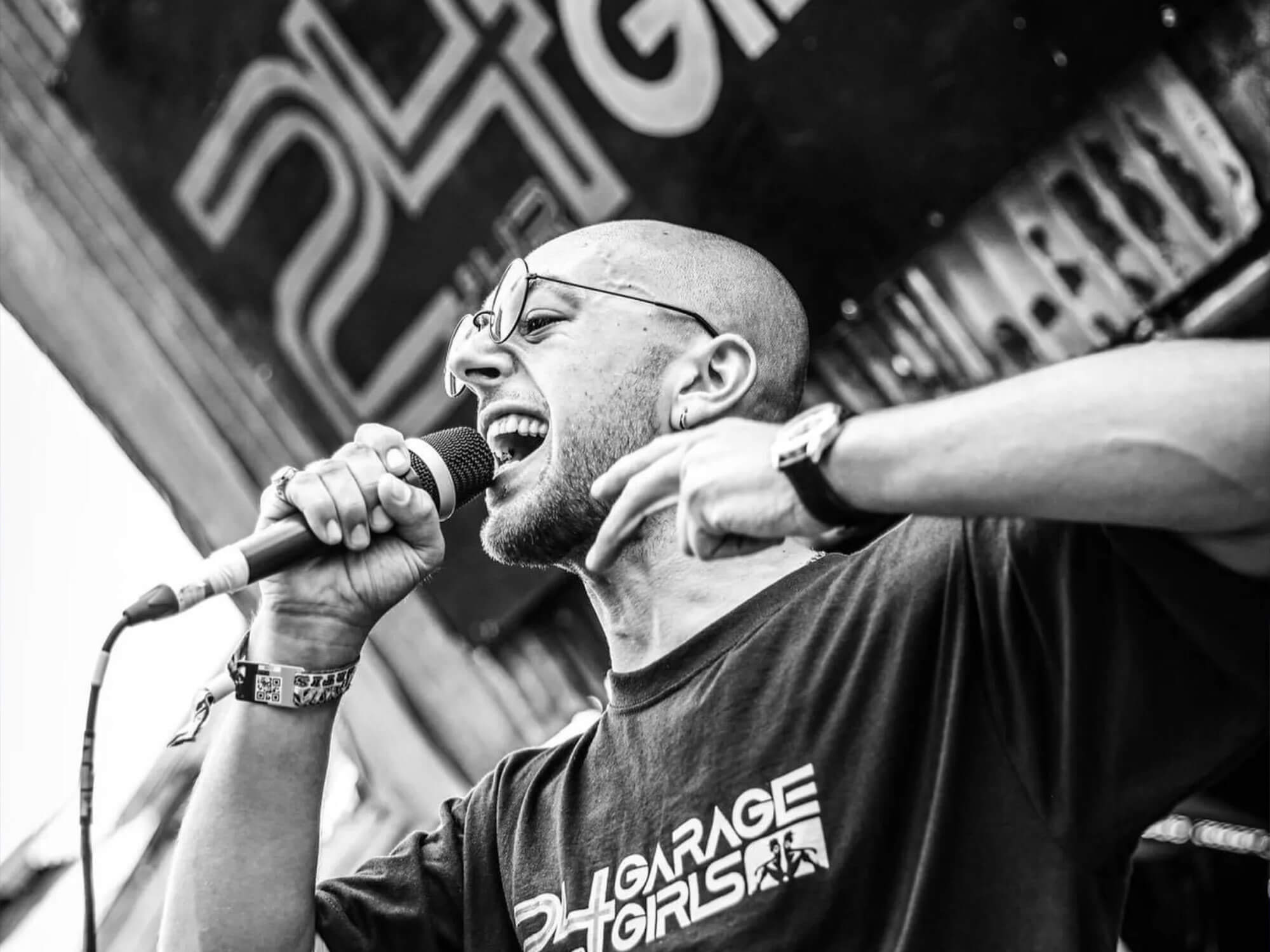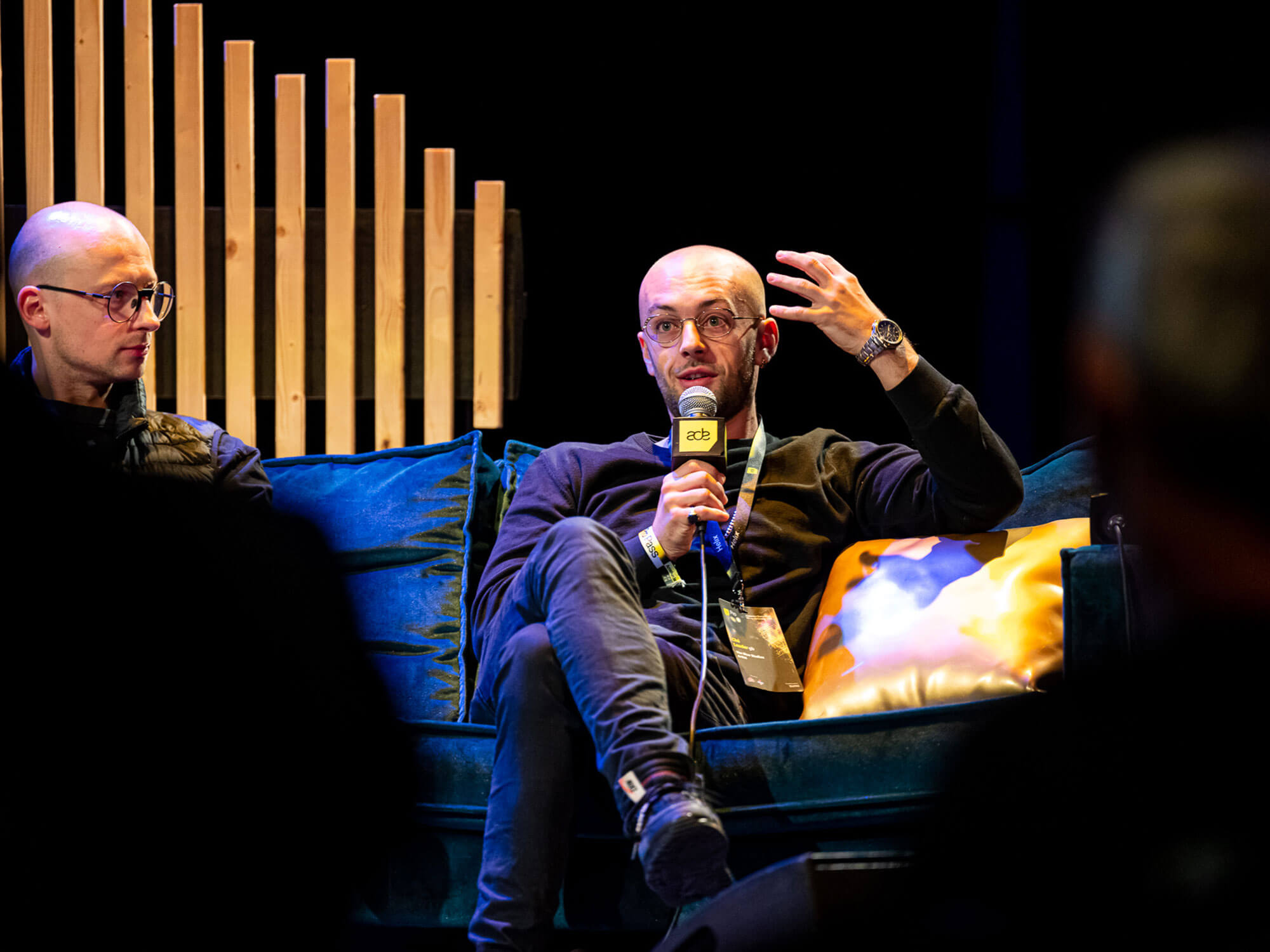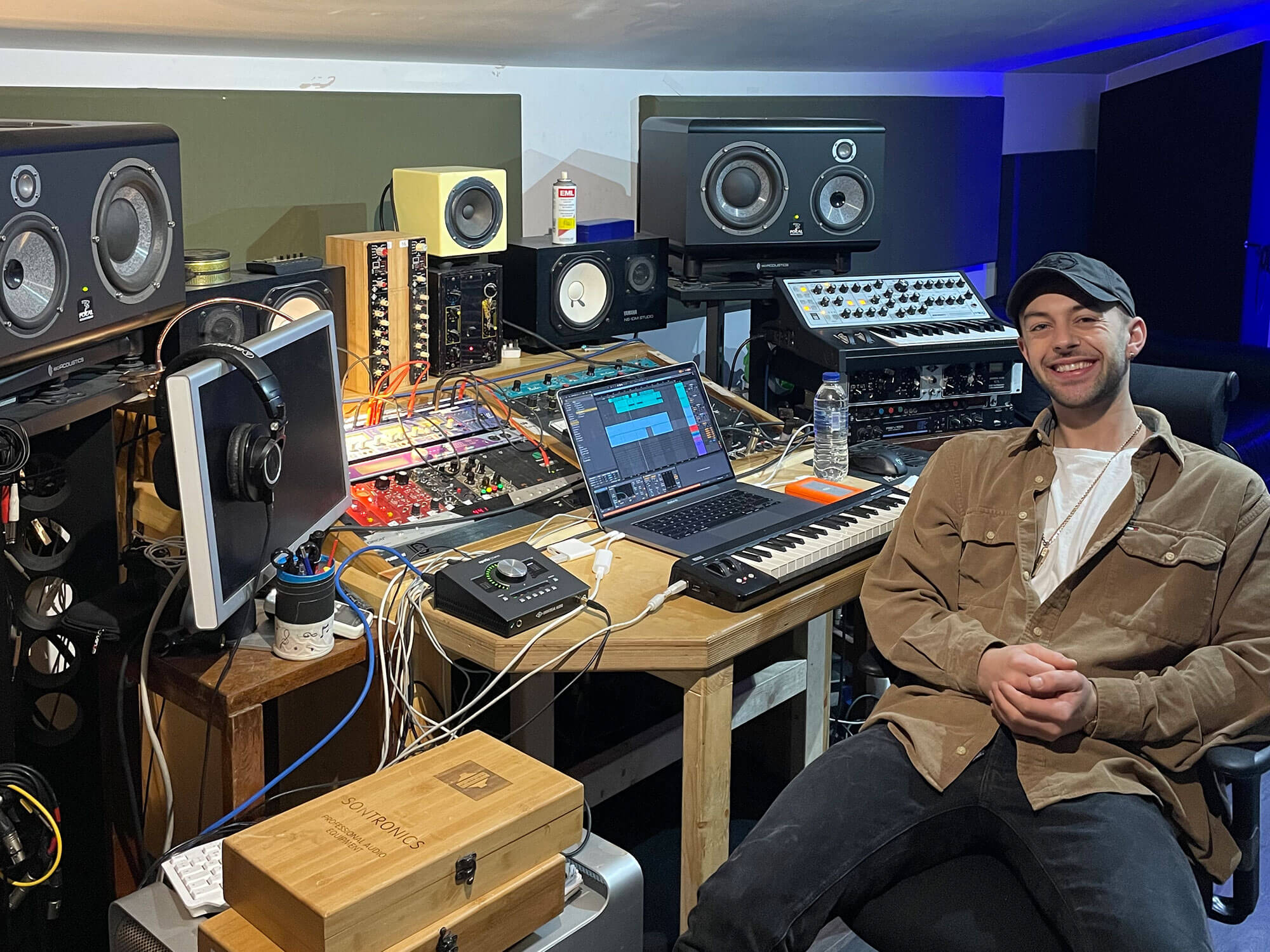Cool careers in music: Ché Leader is creating an accessible music industry
“We want the world to be a more accessible place. We can always do more.”

Ché Leader at ADE
In partnership with dBs Institute.
Ché Leader is a freelance producer, an artist (as Rivibes), and an accessibility consultant and social justice advocate who has been working with names such as Native Instruments. After a car crash that impaired his left eye, he embarked on a course at dBs Institute’s Bristol campus, becoming increasingly interested in how the creation and consumption of music can be made more accessible. There, he delved into sound design and created a unique concept that allowed users to perform music via hand movements. This idea gained traction, propelling Ché into the limelight, and advocating accessibility for the visually impaired on stages such as Amsterdam Dance Event.
Ché Leader’s story is an embodiment of reshaping the music tech world, breaking barriers for a more inclusive musical landscape. His advice? Say yes to everything, put your fingers in all the pies, embrace opportunities and step out of your comfort zone.

Hey Ché, what’s your story and how did you get to where you are?
I’m visually impaired in my left eye; I can’t really see too well – 10-20 per cent vision – from a car crash on the first day going to Bristol. I literally left Plymouth, moved all my stuff, played a gig in Somerset 20 minutes away from my new life and the driver crashed the car.
It’s a bit of a pun but it opened my eyes to a lot of things after having less vision. I started dBs Institute doing sound design for games and apps. In the first two years, I didn’t really know what I was doing and I focussed on a lot of Ambisonics, spatial audio and binaural beats. And then I got to the third year and the lecturers were like, ‘You do your thing now. Tell us what you want.’
I started to look into audio games. I became obsessed with accessibility and audio. I started to look at the relationships between audio games and then high-tech developments going on with non-accessible games. I started to make comparisons, asking ‘Why do you have these really shit audio games called ‘audio games’ for the blind, and then you’ve got the most immersive 3D spatial audio, Oculus Rift VR headsets? But why have they not made the VR headset without the screen? Why is no one tying these two together?
I was like, ‘I need to come up with something’. I created a concept allowing you to perform music with your hands, moving sounds like Imogen Heap’s MiMu gloves but more immersive.
I finished university and the concept received press coverage. I got a call from Yvette Chivers, who read about me in Red Bull and she invited me to Amsterdam Dance Event in 2022 to discuss accessibility for the visually impaired, as part of a project called the VIP Experience (Visually Impaired Person Experience), for which we’ve secured funding to make clubs more accessible. Now, I’m an accessibility advocate, doing consultations and guest lectures. We want the world to be a more accessible place. We can always do more.

Was there a pivotal educational moment that stuck with you from dBs Institute?
I went to a guest lecture with Jon Burton, The Prodigy’s sound engineer, at the Plymouth campus before I went to Bristol. He was like “Do everything. Never stop saying yes, because I’ll go on tour with the Prodigy for six months a year living like a king and then I’ll come back and I’m doing guest lectures for £100 with you guys.”
That stuck with me! The people that are smashing it, they’ve got their fingers in loads of pies. Fred again.. – I think in 2019 He had his name on 30 per cent of the songs in the charts because he was working behind the doors. Then, his time came. You can’t be like, ‘I’m a recording engineer’. I try and do everything, really.

Are there any other areas of accessibility in music that you work in?
Yes. I’ve started working for a charity called Art Against Knives. We’re giving younger people either preventative strategies to stay away from knife crime or support strategies if they’ve been affected by knife crime.
We’re like an outreach centre. We allow people to express themselves through a number of different ways in music, whether that’s just coming in and learning how to DJ or producing with me. That has given me a whole new outlook on accessibility because these people are not disabled. They don’t have any disability or visual impairments but they come from low-income households. They don’t have the tools to go and buy something.
So, it’s all well and good me making music, but now my aim for them is to set up a scheme where I’m teaching young people how to do what I can do. So I can empower them with the skills so they can go on and teach so it can stay within a community, so they don’t need to pay me however much they pay me to come every Wednesday to teach, the young people will eventually teach one another.
Pete Day, one of your former lecturers at the dBs Institute, recently told us about the importance of being polite to your peers and potential career connections. What did you learn from him?
He taught me not to be a dick. I’ve heard people saying ‘Someone’s great to work with but they’re not easy to work with’. People stay because you’re approachable and if you can get their vision, it’s a skill. Being nice, saying yes, being open.
dBs also allowed entrepreneurship and empowered me to use my skills and think bigger about things. The belief that you can do this. I try and take a bit of that dBs Institute mindset and offer it to my students. They empower you to make you feel like you can do stuff.
Can you give any advice for anyone considering a course at dBs?
Just say yes. Just say yes to everything. I’m working on a soundscape that’s going to be played in an 8.1 surround sound system in Germany and that’s probably earning me more than I’ve ever done in the music industry. It’s bizarre. I asked Oliver Brand, Head of Learning and Teaching, “What happens when the plates are spinning and they’re going to stop?” and he was like, “Don’t stop.”
And it’s about taking yourself out of your comfort zone. Not like going skydiving. I don’t want to do an MMA match! But my first client was Mykki Blanco. I was like ‘I can’t tell him he’s my first-ever client!’. That’s just getting out of my comfort zone. I was like “Yeah, okay I can do this”.
Check out Ché’s work via his Instagram page.